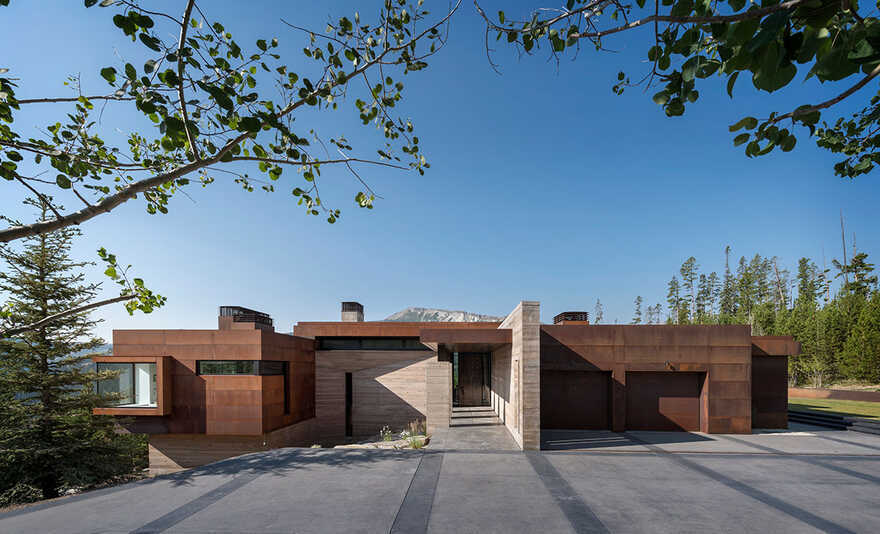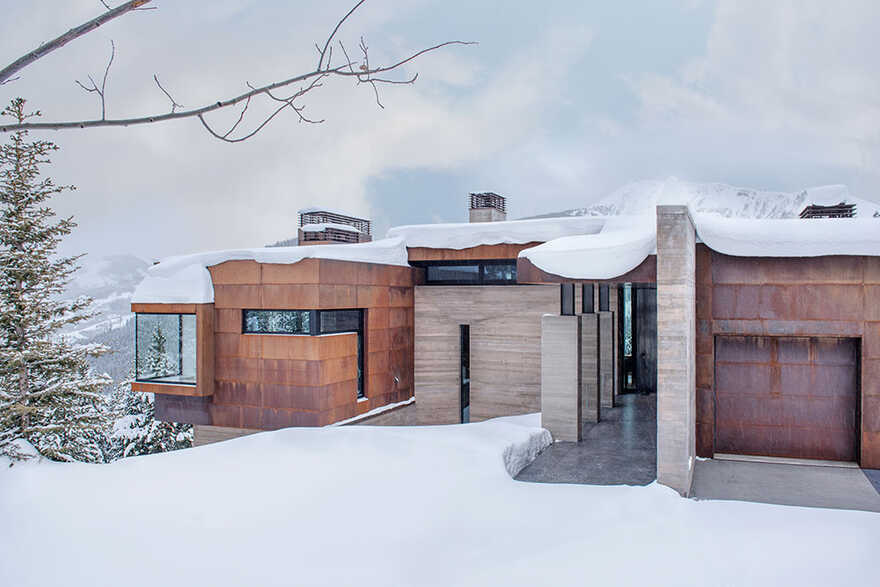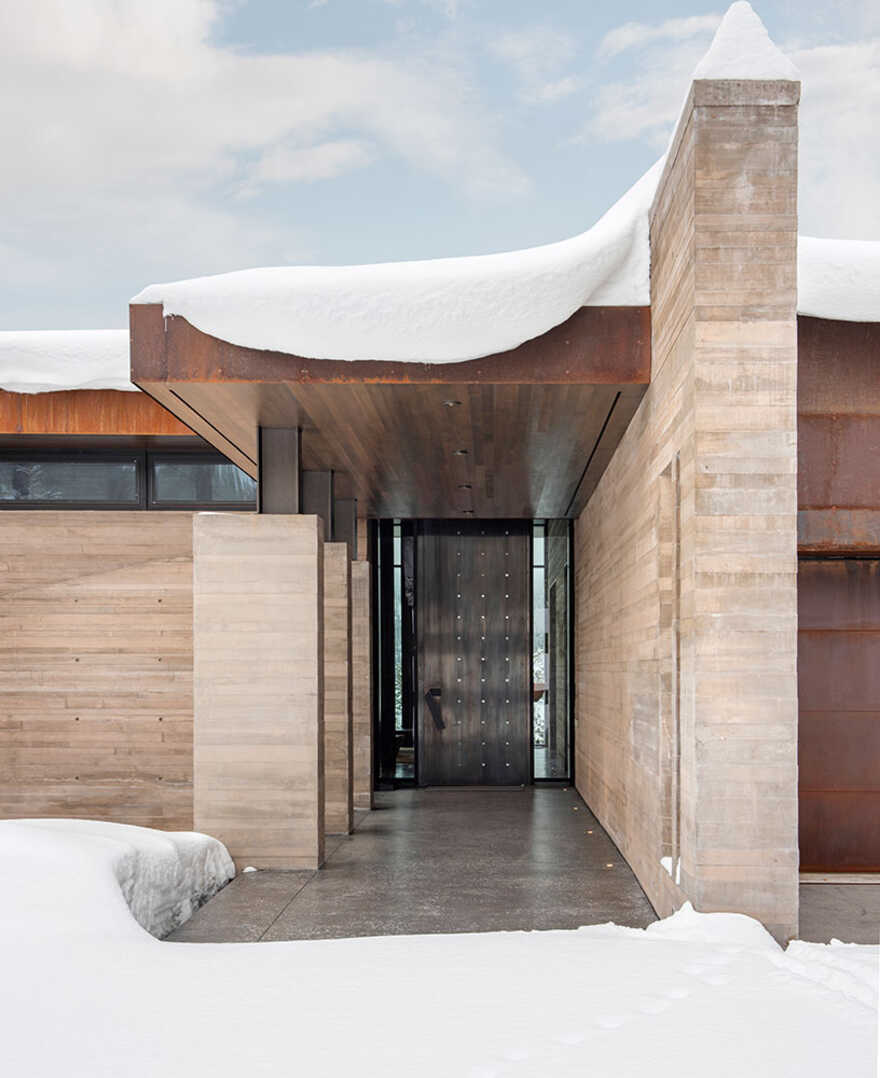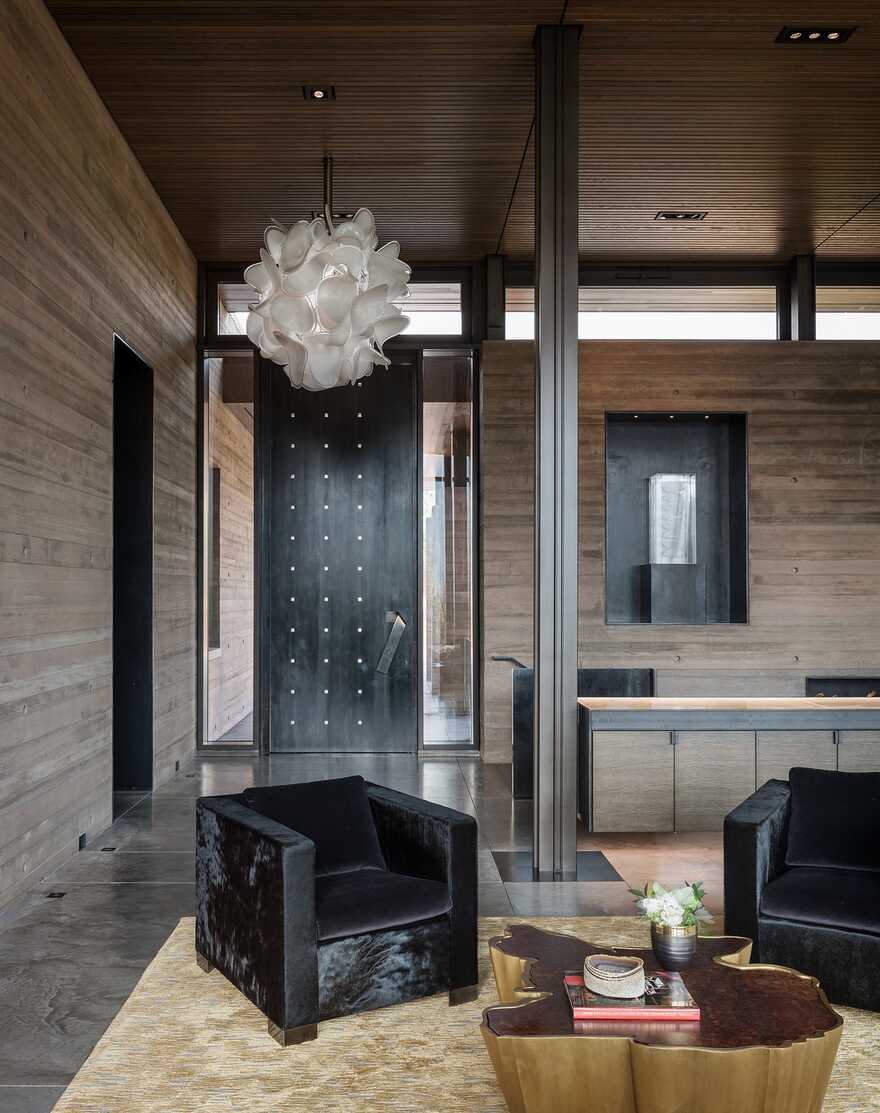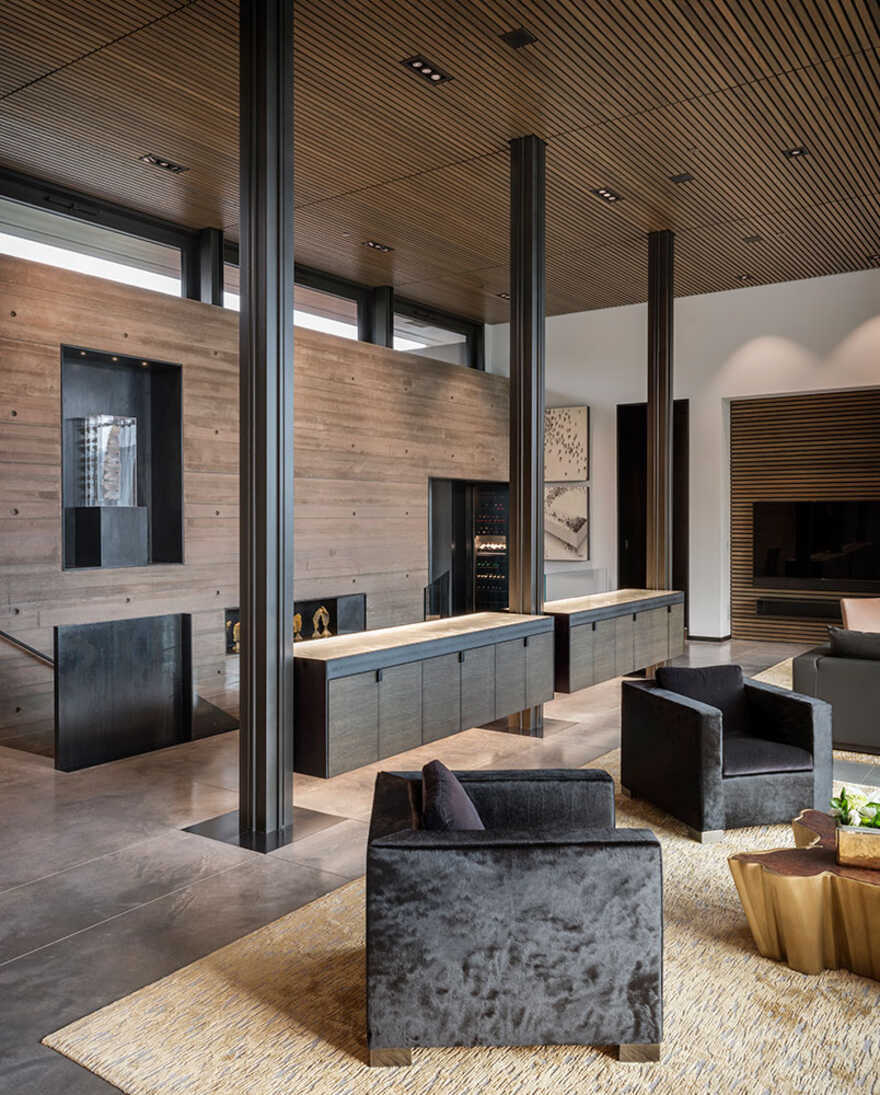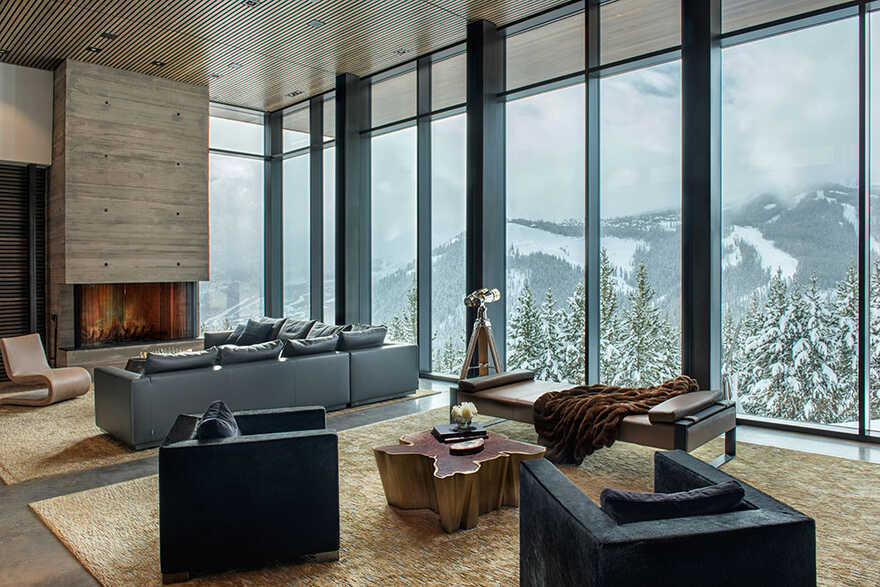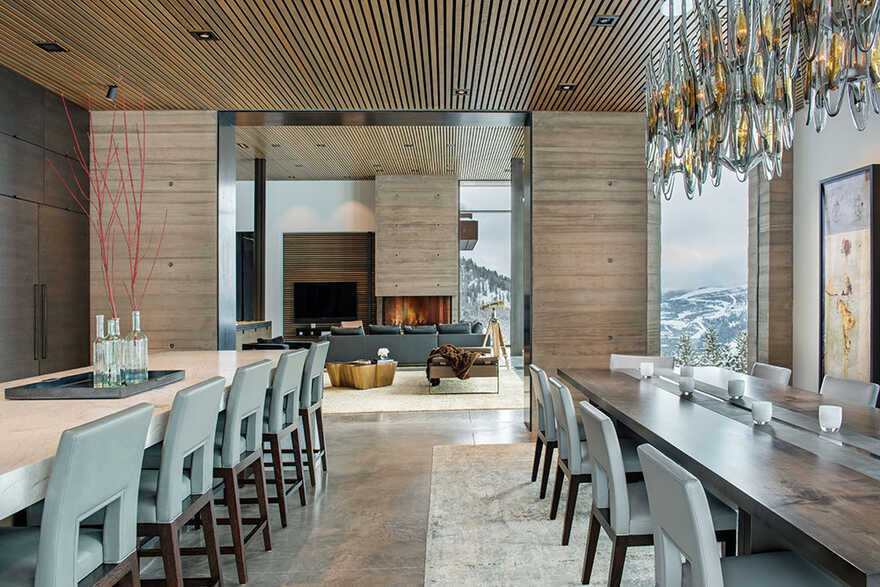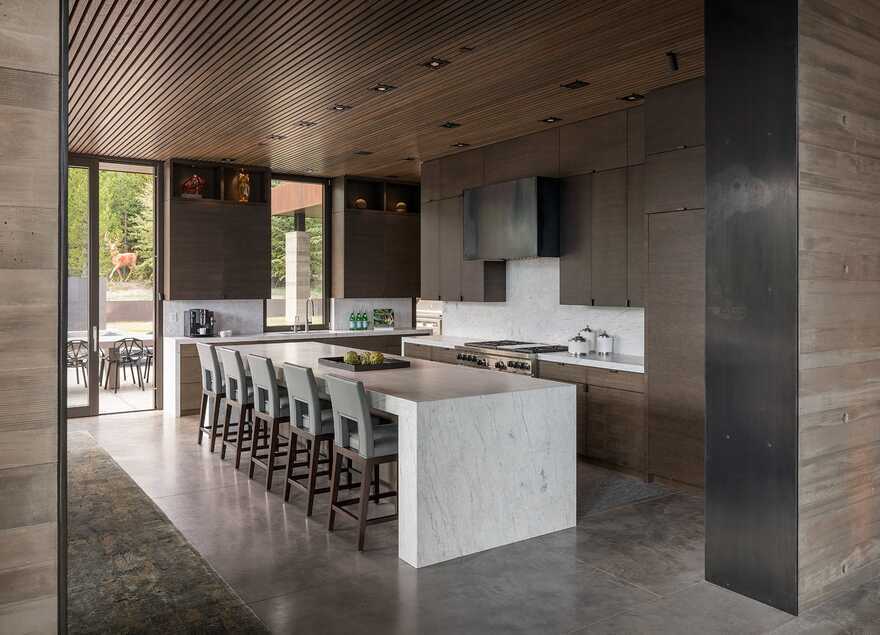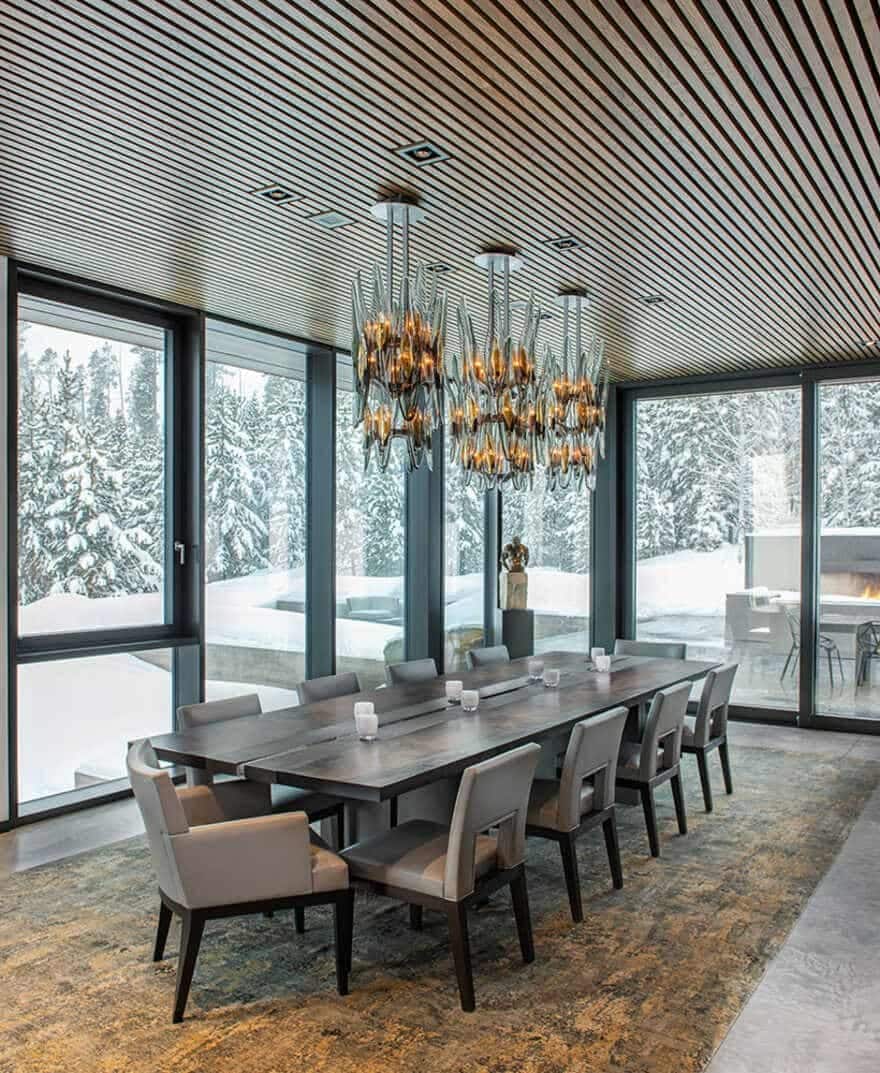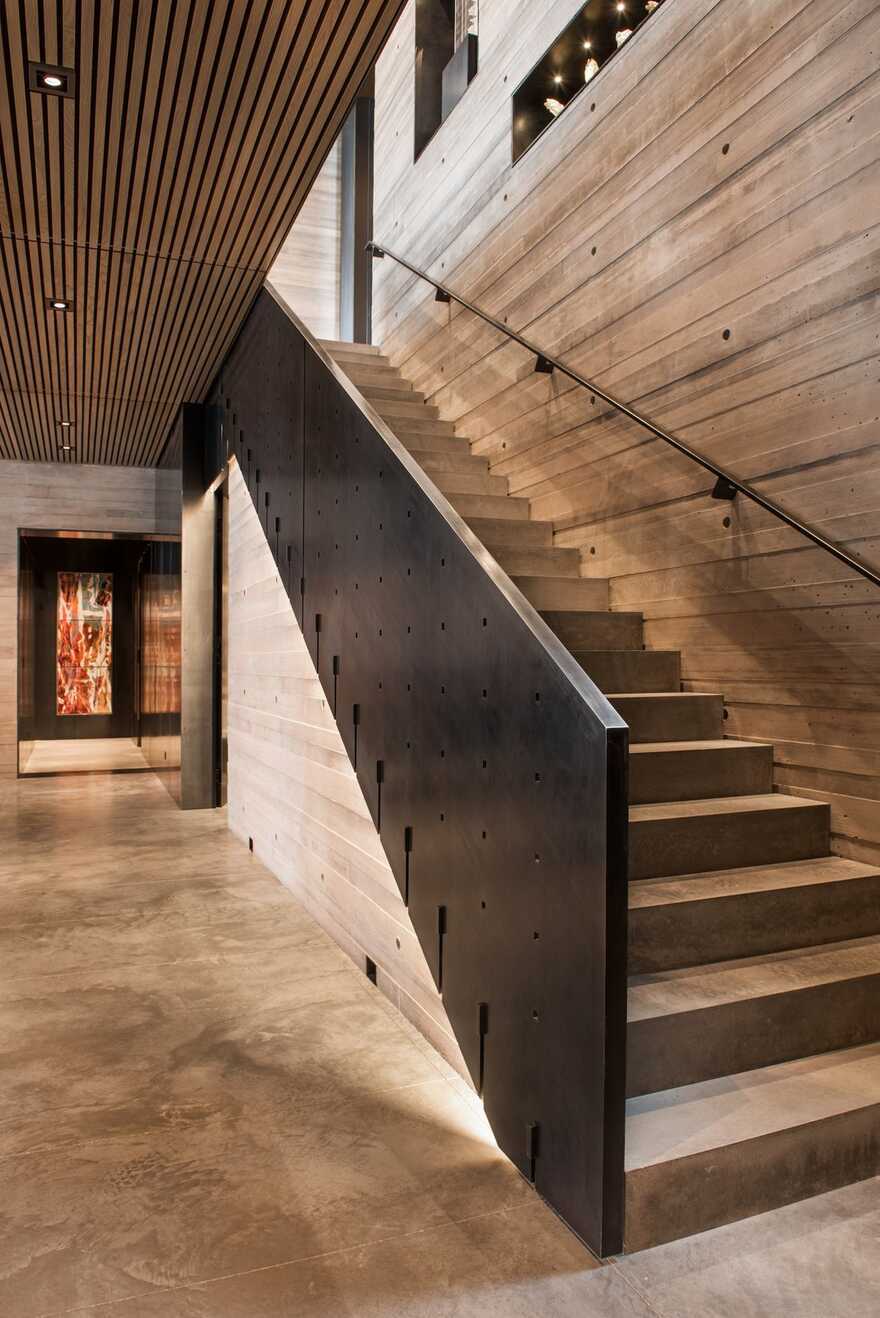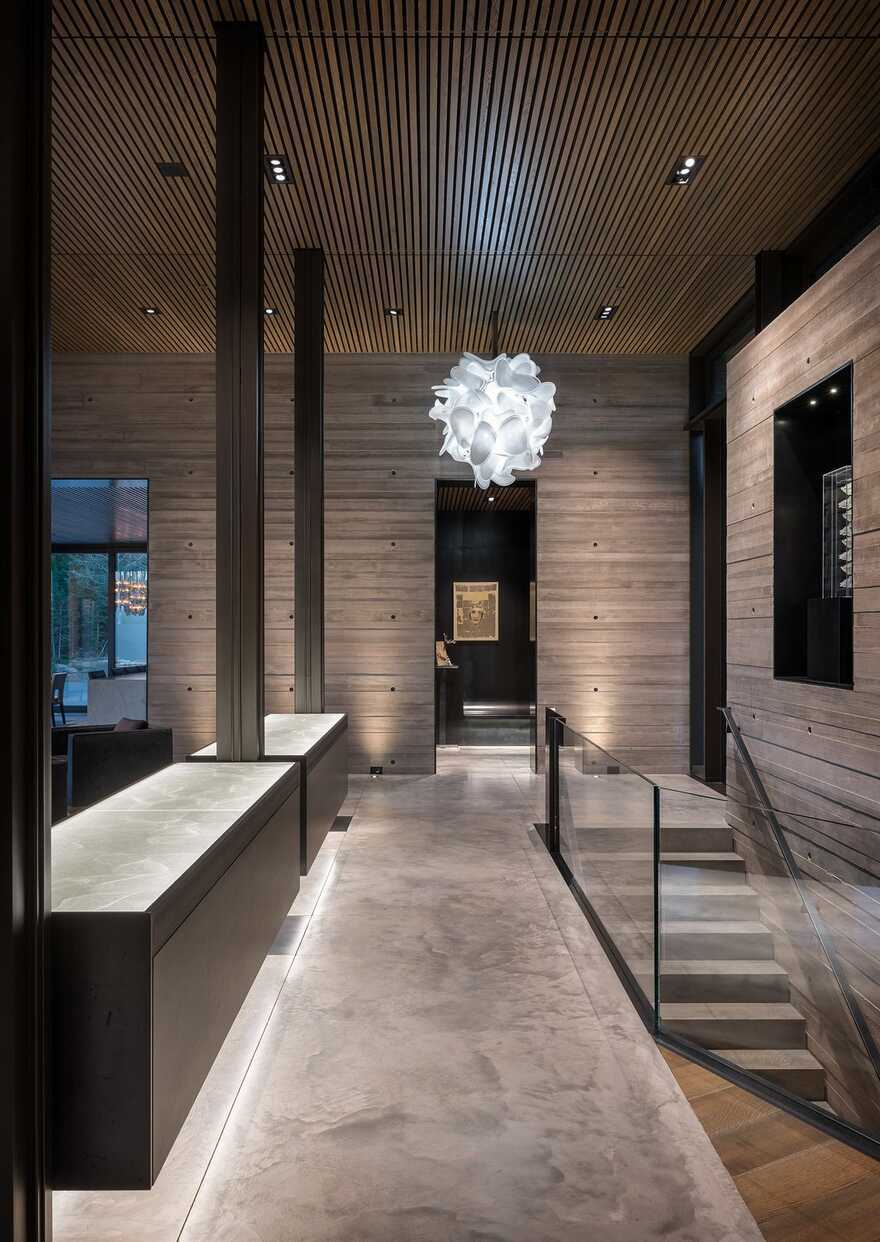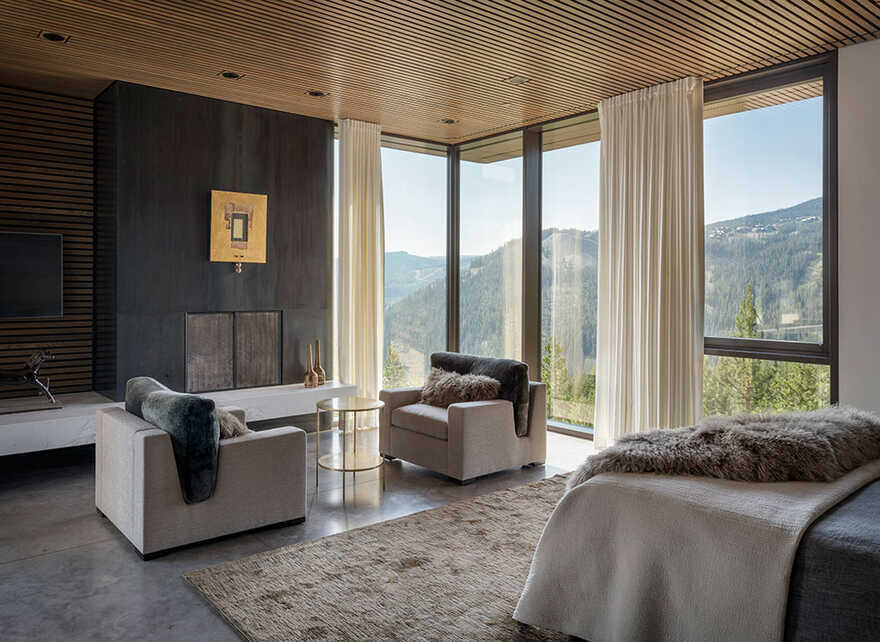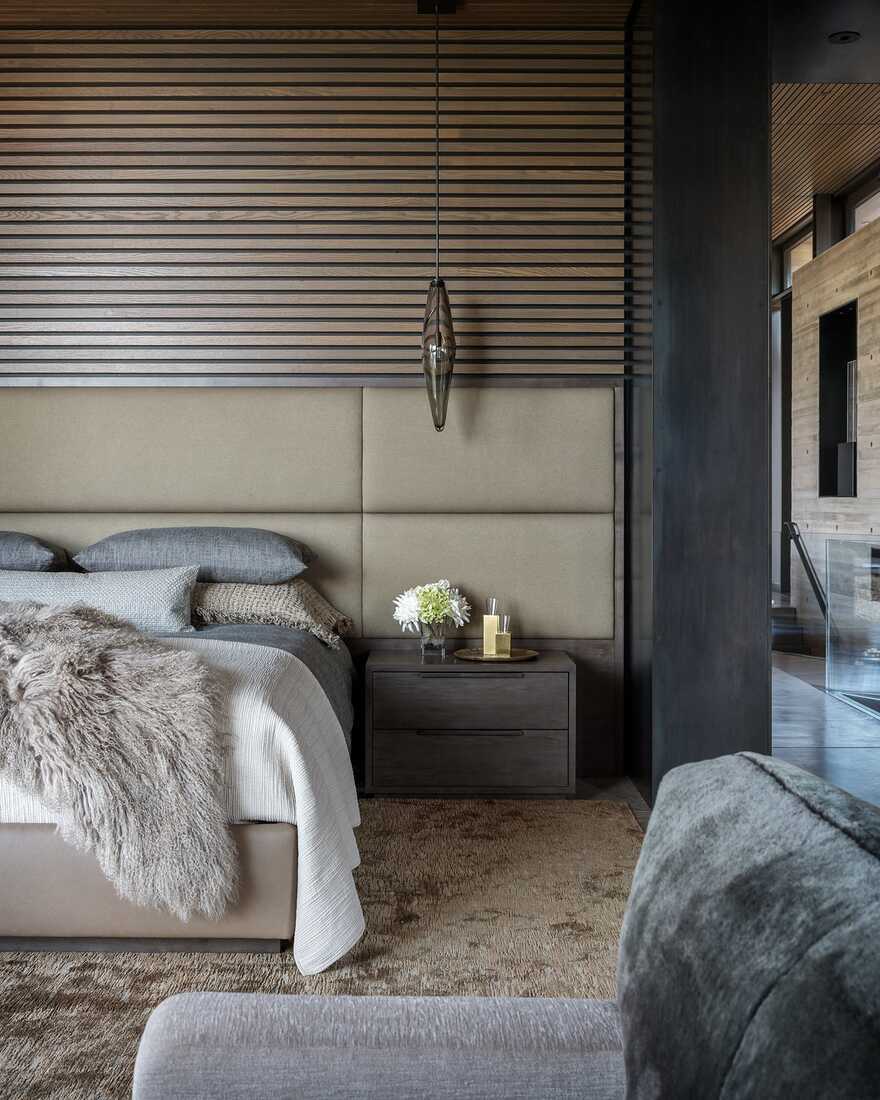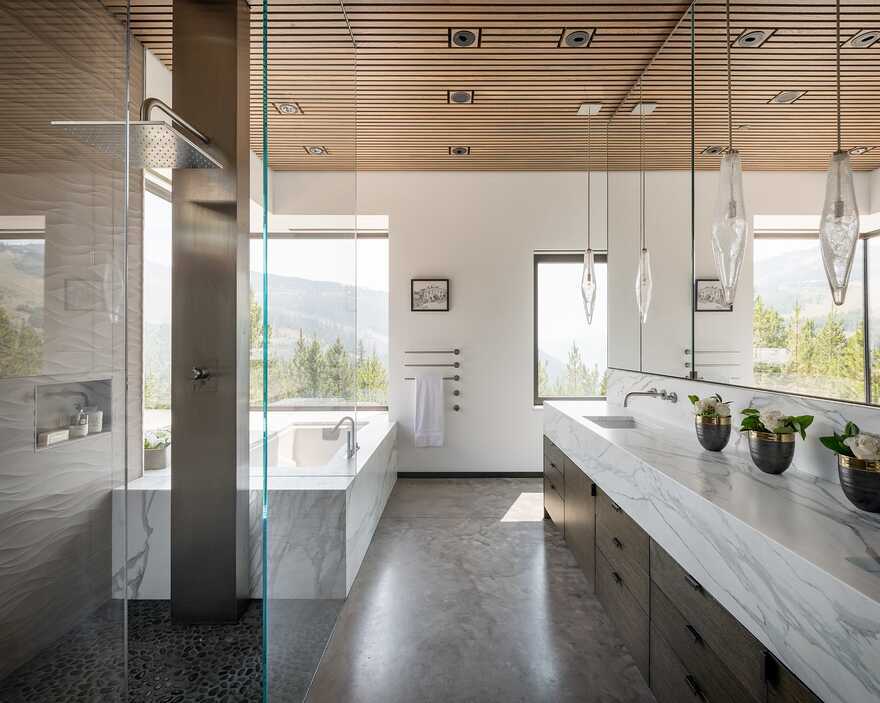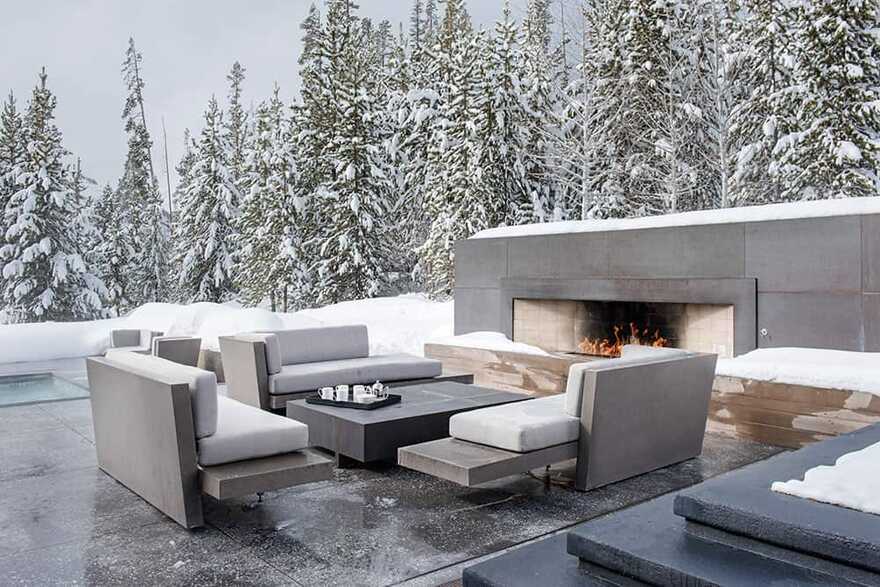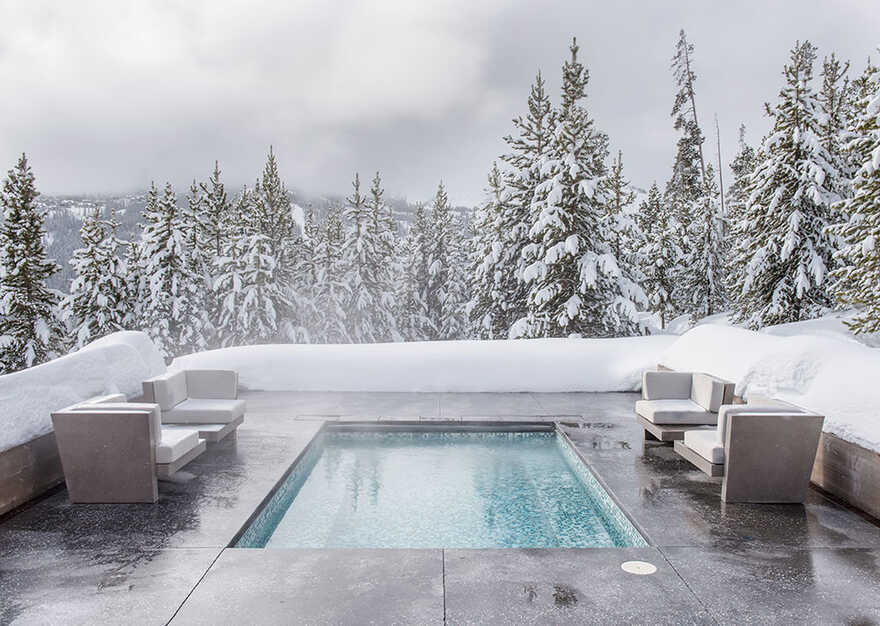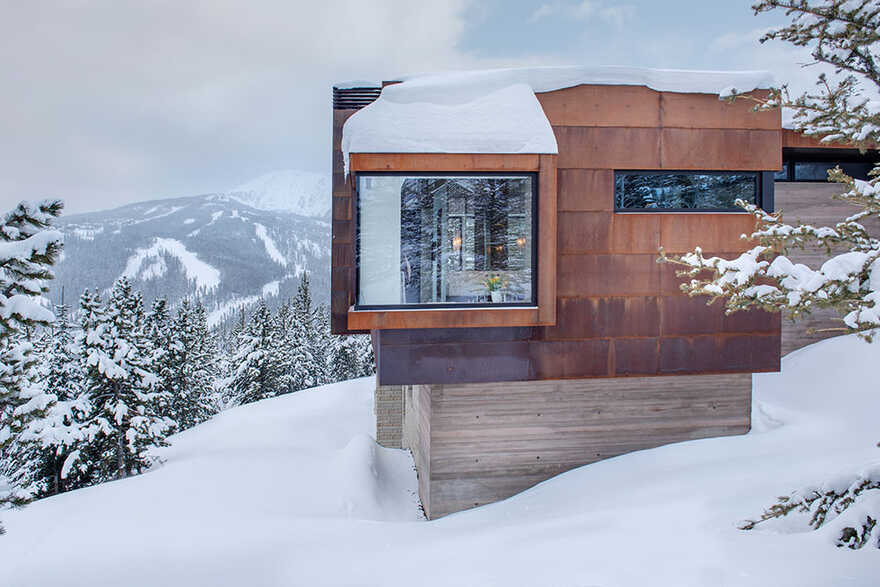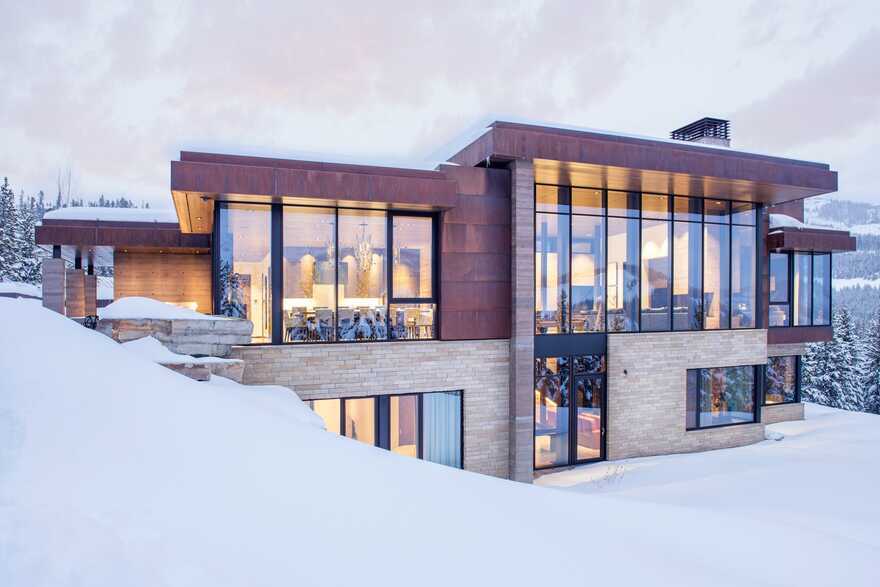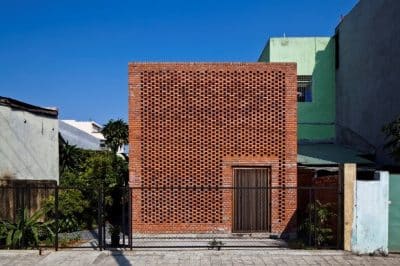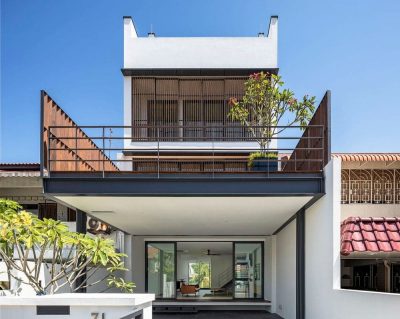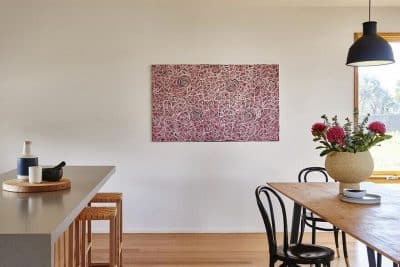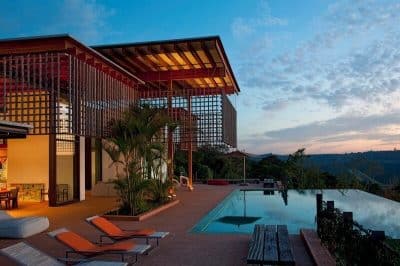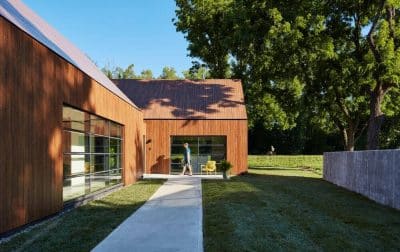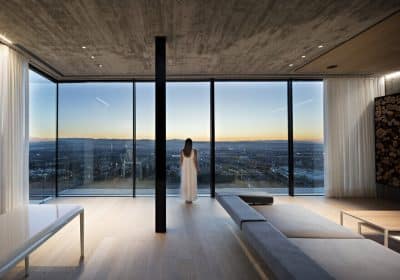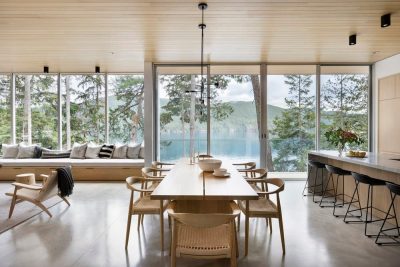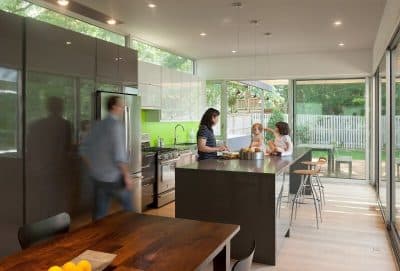Project: Yellowstone Residence
Architects: Stuart Silk Architects (now Silk Cavassa Marchetti)
Team: Stuart Silk, Principal /Julianne Shaw, Interior Designer / Kim Pham
Decorative Steel Fabrication: Brandner Design, Inc
Custom Glass Design: Scott Chico Raskey
Lighting Design: Brian Hood Lighting Design
Construction: Charter Construction
Location: Montana, United States
Photography: Aaron Leitz (spring views); Whitney Kamman (winter views)
Perched at 8,100 feet on the side of a mountain in Montana’s Madison Range, the massing and materials of this house are derived from the powerful landscape. The exterior of the Yellowstone Residence is a composition of core-ten steel and board-formed concrete, materials which metaphorically and directly embrace the harsh realities of the site and its immediate environment. “The site’s rocky alpine terrain,” notes architect Stuart Silk, “provided the inspiration for this home and led us to choosing board-formed concrete and Cor-ten steel as the principal exterior materials. These elemental materials best captured this site’s essential characteristics. I saw the house like a barnacle clinging steadfastly to its precarious perch.”
The 6,100-square-foot Yellowstone Residence is organized by two, massive 18-inch-thick perpendicular board-formed concrete wall which cleaves the house and extends into the landscape to the north and south. “The first wall runs north/south and leads one into the house and directs views at Pioneer Peak,” notes Stuart Silk. “The second is faceted in four directions towards a tall narrow window providing peak-a-boo views from the living room in the otherwise windowless wall.” Approached alongside the wall, one is led to the entrance, a large, steel, pivot door. The wall continues through the house and extends thru the living room, where it directs the view across a timbered valley directly toward the 9,800 foot summit of Pioneer Mountain and the sky itself. The use of Cor-ten helps merge the home with the rocky soil, becoming an outgrowth of its site. A second four-foot-thick concrete wall runs perpendicularly to the first wall and features faceted planes that angle towards a tall, narrow window into the stairway and living room. The facets recall those found in the rocks on the site.
Entry is at the upper floor of this two-story home. The principal spaces include the 15-foot-tall living room which is flanked by two, eleven-foot-tall volumes containing the kitchen/dining room to the west and the master bedroom suite to the east. The lower floor holds the entertainment room, three guest suites, and a bunk room. To maintain privacy, the home is nearly opaque on the entry side of the building except for a tall, narrow slot of glass in the faceted concrete and a two-sided projecting corner window that provides views to the north and east from the master bathroom. The two different ceiling heights modulate the composition and are a subliminal reminder of the hierarchical structure of the surrounding mountains.
The interior palette of materials is minimal and focused on natural materials and finishes. “The Yellowstone Residence was a rare opportunity to work with a client who has a keen eye for a high level of design and detail,” notes interior designer Julianne Shaw. “My goal was to create spaces specialized to the owners. We accomplished this by bringing the Montana landscape colors into the interiors, using natural stone throughout, and adding refined furniture, luxurious fabrics, and silk area rugs into their spaces. The addition of custom art glass lighting and feature windows created the final sparkle.’’ At each level, a cedar, slatted ceiling is supported above the monolithic concrete floor. Structural steel columns are left exposed in the living room. Blackened-steel panels delineate apertures in the thick walls. Floor-to-ceiling glass walls allow unobstructed views of the dramatic alpine landscape and sky, while a continuous band of clerestory windows in the living room allows balanced light to penetrate the home from four sides. Two sculptural-steel elements—the oversized twelve-foot-tall pivot door at the entrance, and a three-quarter-inch thick, twenty-foot long stair railing—are punctuated with arrays of square, glass-filled holes, reminiscent of stars in the night sky. The railing is supported by rectilinear steel dowels embedded into the concrete stair.

